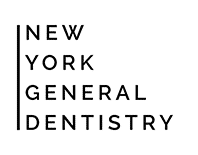April is National Stress Awareness Month, and it’s likely that you know at least a little about stress and its negative effects on your body and mental health. But, one important thing to know is that stress can take a major toll on your teeth and jaw as well. For this reason, it’s more important than ever to take the right steps if you experience high amounts of stress and suffer from dental symptoms as a result. Here’s why stress is bad for your teeth and what you can do about it.

Bruxism
Bruxism, or teeth grinding, is a common accompaniment to times of stress. It can also mean excessive teeth clenching. There are a handful of reasons that this is bad for your teeth, the greatest of which is that it can wear down your enamel over time and even damage or crack your teeth. Although clenching your teeth during stressful times is common, it becomes a concern if you do it while sleeping or constantly throughout the day as it puts excess pressure on your teeth and TMJ. Both are parafunctional habits that exacerbate the amount of force placed on your eating and speaking mechanism. During normal function, we exert up to 200lbs of force on teeth. In excess, these forces can become threefold and cause immediate or chronic damage to enamel and joints in the head and neck.
TMJ Disorders
The temporomandibular joint (TMJ) is the one that connects your lower jaw to the rest of your skull and upper jaw. It is an intricate system incorporating various muscles, tendons, and bones. Unfortunately, the joint and it’s musculature can become subject to tension and stress that cause symptoms including pain, discomfort when opening the mouth, tightness, clicking, and even locking in place. In some people, it can even cause excessive headaches, migraines, searches, and neck pain. In severe cases, the joint may start to degenerate causing a shift in the alignment of the jaw.
What can I do to protect my teeth and TMJ?
People’s stress levels are at an all-time high given the COVID-19 virus and its effects on everyday life and our health. The best way to start protecting your teeth is by managing your stress levels. This can be a huge task especially if your workplace or lifestyle includes lots of stress, but it’s integral to making sure you maintain your oral health for the long term. If this seems like too big of a task to handle on your own, consider seeing a mental health professional who can give you ways to manage your stress levels. Natural stress relievers include exercise, yoga, and meditation.

Additionally, your dentist can give you a deprogrammer for muscle tension or create a bite guard to wear at night or during periods of stress to protect your teeth from damage. The appliance is a small tray that fits snugly on your teeth and provides a protective surface to buffer excess stress. The guard also opens the TMJ relationship allowing muscles and joints to relax.. Injectables such as Botox® can prevent excessive grinding as well as allow your TMJ to recover from symptoms like inflammation and discomfort for up to 4 months at a time. Botox immobilizes the muscles so they can not become tense. Finally, your dentist can ensure that your teeth are remaining healthy and recommend restorative options if your teeth are suffering from excessive wear.
Schedule an Appointment
Stress can take a toll on your mental, physical, and dental health, so it’s important to take the right steps. To meet with Dr. Chern and get started on your treatment options, we invite you to contact our Midtown East Manhattan office by calling or filling out our online form.
For over 20 years, Inna Chern DDS FAGD, has been offering personalized, high-tech dental care to Manhattan and NYC residents. With a focus on individualized attention and the latest technology, her modern Midtown East office aims to reshape dental care perceptions in New York by prioritizing patient well-being and innovative services.



